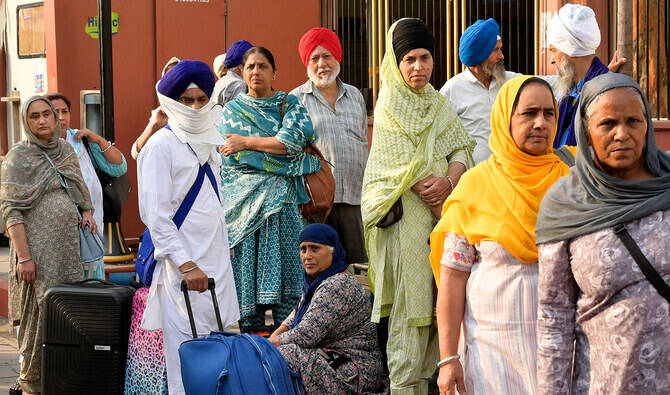For the first time in 50 years, Sikh pilgrims from India are visiting their sacred shrines in Pakistan. This historic moment comes as Pakistan Sikh Pilgrimage Visas were expanded to 6,629—more than double the usual number. The move has been described as a landmark gesture for religious harmony.
Pilgrims are now reaching revered sites like Nankana Sahib, the birthplace of Guru Nanak. Access to these places was limited for decades. This year, however, Baisakhi holds deeper meaning. Thousands of Sikh devotees are celebrating the festival at the very heart of their spiritual heritage.
The increased Pakistan Sikh Pilgrimage Visas reflect the country’s renewed commitment to religious freedom. Despite the strained relations between India and Pakistan, this move offers hope. It shows how faith can bridge divides where politics cannot.
International observers have praised this decision. Many noted the contrast between Pakistan’s openness and India’s tighter visa restrictions, especially for religious minorities. In Punjab, the gesture sparked a wave of goodwill. Communities hailed it as a new chapter in people-to-people diplomacy.
The expansion of the pilgrimage visa program is not just policy—it’s emotion. For many Sikhs, visiting Nankana Sahib was a dream long delayed. This year, it finally came true. Smiles, prayers, and tears marked the moment as spiritual bonds were rekindled.
Pakistan’s decision to issue record-breaking Pakistan Sikh Pilgrimage Visas was seen as an act of spiritual diplomacy. While regional tensions persist, this gesture stands as a symbol of peace and hospitality. Cultural exchange was given room to breathe, even in a tense climate.
This isn’t just about numbers. It’s about compassion. It’s about respect for history and identity. The pilgrimage visa expansion shows that meaningful gestures still matter. In a region often defined by conflict, this move tells a different story—one of connection, not division.
By welcoming thousands of Sikh pilgrims, Pakistan sent a clear message. Interfaith respect can overcome even the harshest borders. In doing so, the Pakistan Sikh Pilgrimage Visas initiative became more than a policy—it became a message of hope.


